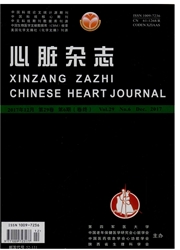

 中文摘要:
中文摘要:
目的 研究尼古丁对心肌细胞H9C2的影响及其机制。方法 将培养的H9C2细胞分为4组即对照组、尼古丁组(10 μmol/L)、对照+丝苏氨酸蛋白激酶(Akt)过表达组、尼古丁(10 μmol/L)+Akt过表达组。孵育48 h后用细胞增殖与毒性检测试剂盒(CCK-8)检测细胞活性率;Caspase活性检测试剂盒检测凋亡率;Western blot法检测Akt蛋白表达水平。结果 与对照组相比,尼古丁组细胞活性明显降低(P〈0.05),细胞凋亡显著升高(P〈0.01),Akt蛋白水平显著下调(P〈0.01)。Akt过表达可有效改善尼古丁引起的细胞活性的降低(P〈0.01)减少细胞凋亡。结论 尼古丁通过下调Akt蛋白表达水平引起心肌细胞的凋亡。
 英文摘要:
英文摘要:
AIM To determine the effect of nicotine on cardiomyocytes and the mechanism underlying it. METHODS Cultured H9C2 cells were randomly divided into 4 groups: control group, nicotine group(10 μmol/L), control+Akt overexpression group and nicotine (10 μmol/L)+Akt overexpression group. Forty-eight hours after culture, cell viability was detected by CCK-8, apoptosis was detected by Caspase-3 colorimetric activity assay kit and the protein level of Akt was detected by Western blot. RESULTS Compared with the control group, the cell viability of the nicotine group was obviously decreased(P〈0.05), the cell apoptosis was remarkably improved(P〈0.01) and the protein level of Akt was decreased(P〈0.01). These changes were all reversed by Akt overexpression(P〈0.01). CONCLUSION Nicotine down-regulates the protein level of Akt, which can induce the apoptosis of H9C2 cells.
 同期刊论文项目
同期刊论文项目
 同项目期刊论文
同项目期刊论文
 期刊信息
期刊信息
